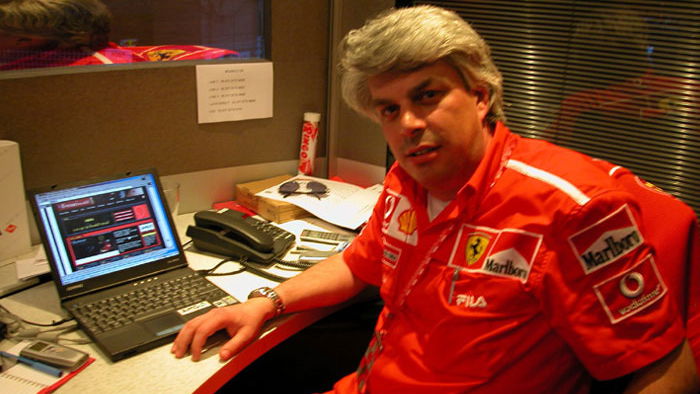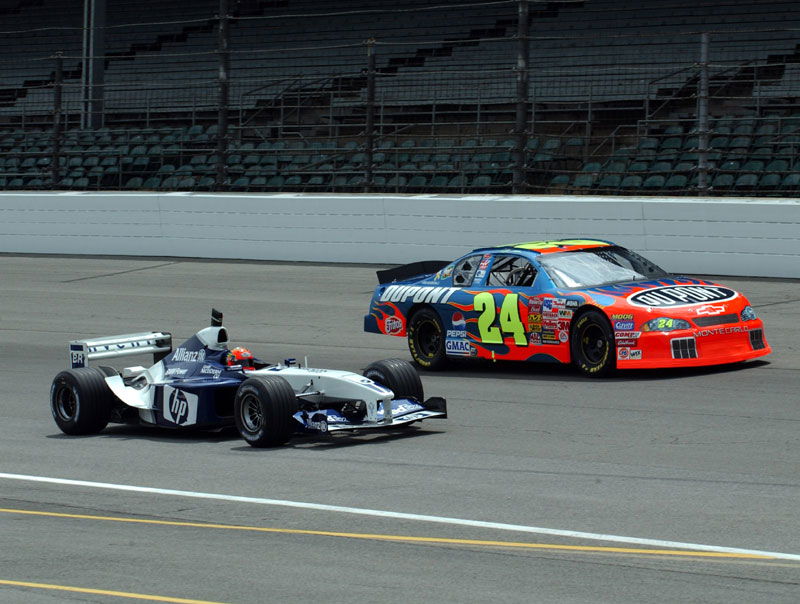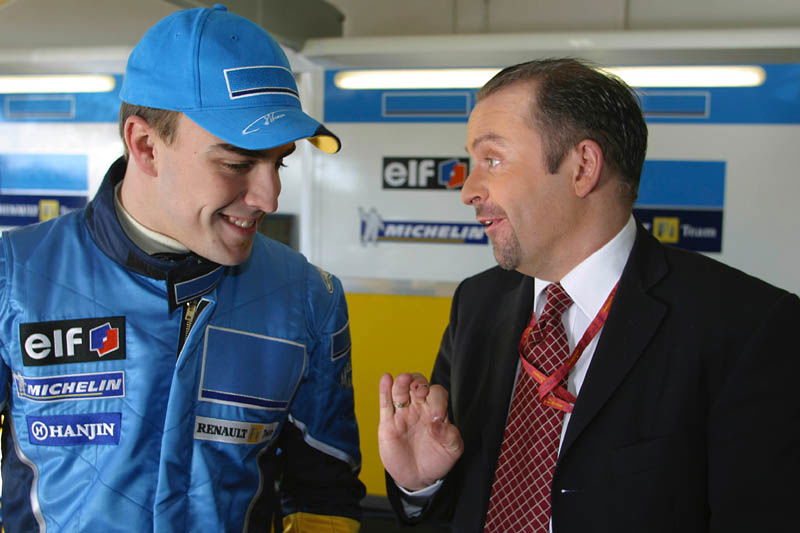F1 feature: Roberto Dalla, electronics' secrets.
Of all the developments that have come into Formula One over the past decade, none has had such a rapid growth or impact on a F1 performance as the introduction of on-board electronics systems.
From a relatively simple "black box" engine management system, developed for Ferrari by technical partner Magneti Marelli in the past, the current Grand Prix cars have now become a virtual mobile computer beds as intricate electronics take care of different aspects of the car including traction control, gear-changing and the start, etc.

Of all the developments that have come into Formula One over the past decade, none has had such a rapid growth or impact on a F1 performance as the introduction of on-board electronics systems.
From a relatively simple "black box" engine management system, developed for Ferrari by technical partner Magneti Marelli in the past, the current Grand Prix cars have now become a virtual mobile computer beds as intricate electronics take care of different aspects of the car including traction control, gear-changing and the start, etc.
The successful integration of these systems into the car from track to track has created a whole new generation of race engineers whose "black art" has now become the key to the successful exploitation of the racing car.
At Scuderia Ferrari Marlboro, the chief 'wizard' of Ferrari's sporting arm is 45-year-old Roberto Dalla, who heads up the electronics department and plays a key role in Sunday's successes. After gaining a degree in electrical engineering in 1984, he went into industry as a software engineer of electronically controlled machines before being recruited by Ferrari where he did similar work. He progressed to being a systems engineer and in 1994 was promoted head of the electronics department for the Formula One team.
The various electronic "driver aids" as they have been called have come under a lot of attack in recent times for making life a bit too easy for the driver. Critics complain that any driver of average skills can drive a current Formula One car competitively, but it's an opinion that, not surprisingly, Dalla does not agree with, and he has some strong arguments to support his views.
"I can understand why people say that the electrics can help a driver. It's true, but then the whole car is designed to help the driver, so the electrics should be considered like any other part of the car like the wings, aerodynamics or suspension etc."
"Another point is that it takes a good driver to exploit the electronics to their best advantage. If you look at the steering wheel you can see just how many things a driver can do. It is full of possibilities to give the driver a lot of help during the race, but only if he is capable of using that technology to its full potential. It is important that we show that F1 is the top of all types of current technology, including electronics," points out Dalla.
Coming from that viewpoint, it's not surprising that Dalla feels that launch control and automatic gearboxes being banned from next year onwards is not a good idea. "It's putting a limit on a basic technology and for me there is no reason to put a limit if we accept that it's the driver that has to use this device to its best," he says.
"I can understand that a launch control system where a driver only needs to add power and press a button for a good start is hard for the public to accept and it is something that is certainly at the top of the driver aids list. But we will not ban what it is impossible to check. We can take out a form of launch control and automatic gearbox software and be sure that nobody has it. The important thing is that everybody has the same. With this concept we can reduce driver aids, but still carry on development and be sure that everyone has the same thing."
"The difficulty of banning launch control without traction control is that you can ban some functions, but the traction control function will still help the start of course. It's better than nothing," points out Roberto. "It is a solution of compromise and a logical solution."
The Magneti Marelli role in Ferrari's success has been considerable. "They are our biggest supplier. The advantage of working with Magneti Marelli is that we can have access to the latest technology as soon as it arrives on the market. The second generation of electronics has been born with a big help from Magneti Marelli."
"In the past Magneti Marelli developed the complete system of electronics because Ferrari had no big knowledge about electronics. We got a bolt-on system and fitted it to the car. Today, the electronics are a strong integrated part of all development for the car and are designed to integrate with the mechanics of the chassis, the engine and the aerodynamics. Magneti Marelli supply a huge effort in the basic technology, but now the integration of that technology into the car is in the hands of Ferrari," he says.
In the hands of Roberto Dalla in particular and even if the rules might change and develop over the years, sophisticated electronics will always play a major part in any car.

